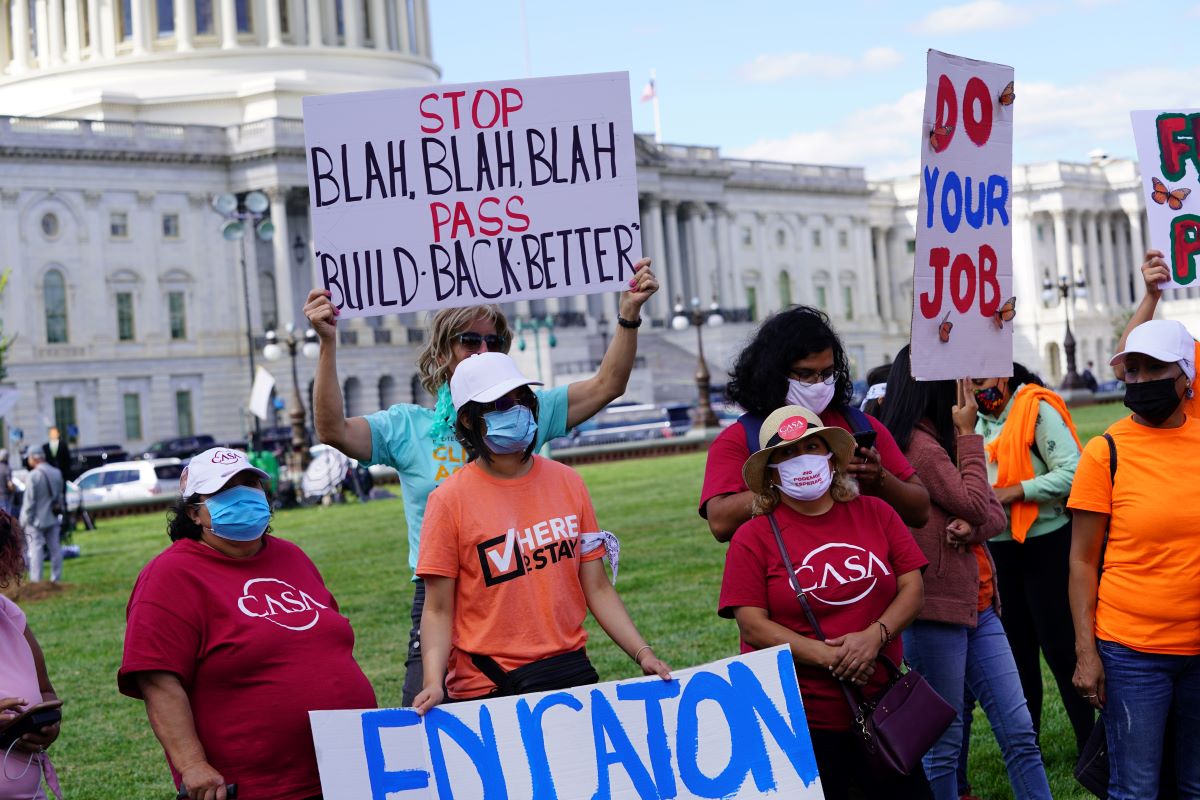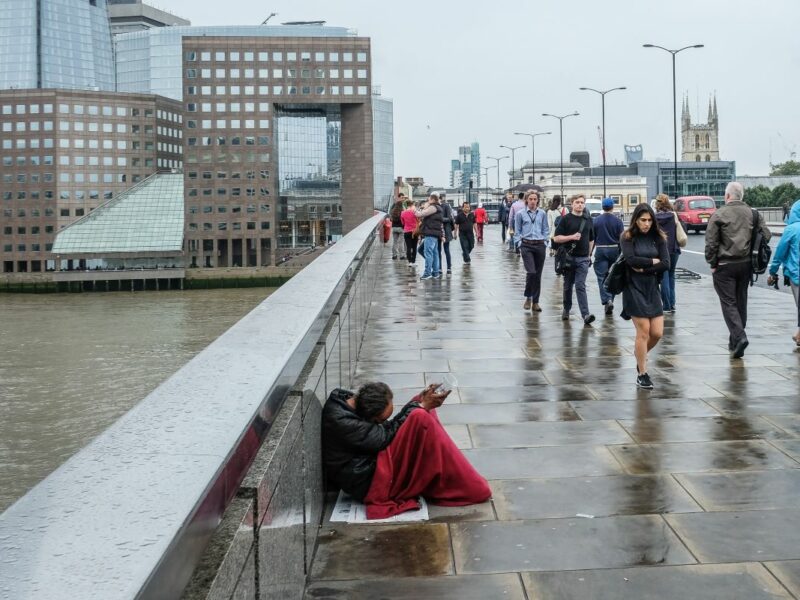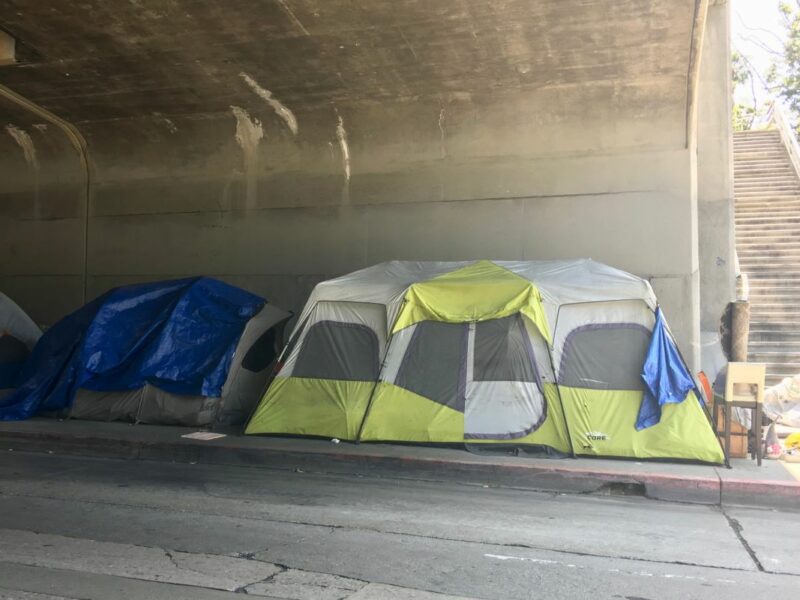Build Back Better Act Should Focus on Providing Stable Housing to People in Need Across the Nation
Reconciliation negotiations over President Joe Biden’s $3.5 trillion Build Back Better Act (BBBA) is putting more than $327 billion in affordable housing investments at risk as progressive and moderate Democrats seem to be drifting apart on this critical issue.
The current price tag for the bill stands at $3.5 trillion, though some members of the Senate have expressed a desire to lower it to near $1.5 trillion. The bill includes housing investments such as:
- $90 billion to expand rental assistance for low-income households.
- $80 billion to repair and preserve public housing, and
- $37 billion to build and preserve 330,000 rental homes through the National Housing Trust Fund.
More than 1,600 national, state, and local organizations have signed a letter calling for Congress to protect these investments during negotiations. They argue that “any cuts to the overall budget reconciliation package or changes to program levels must not come at the expense of proven solutions for households with the greatest needs.”
“It would be deeply shortsighted for the White House and Congress to cut targeted housing investments from a bill meant to prioritize ‘human infrastructure,’” said Diane Yentel, CEO of the National Low Income Housing Coalition. “Stable, affordable housing is the foundation on which all other priorities in the bill rest. Better health care or increased educational access will not do much for families sleeping in their cars or under bridges, or for the millions more on the verge of homelessness.”
Several members of Congress echo these concerns as well, saying the need for investments in stable housing has become abundantly clear.
All 29 Democrats on the House Financial Services Committee sent a letter to President Joe Biden calling on his administration to focus on “the immediate housing infrastructure needs facing individuals, families, and communities throughout the United States” as they negotiate the BBB through Congress.
“Investments in affordable housing will not only increase and improve the supply of affordable housing, but will also create jobs throughout the country, and generate revenue for state and local governments, which will go a long way to help our economy recover from the pandemic,” the letter reads in part.
Despite the demonstrable need for the affordable housing investments included in the BBBA, lawmakers on both sides of the aisle have come out against the bill. Republicans have consistently argued that the price tag is too high, while some Democrats like Sen. Joe Manchin of West Virginia said $1.5 trillion might be his limit.
Nancy Kwak, an associate professor of urban history at the University of California, San Diego, told Invisible People in an interview that the reconciliation negotiations have revealed that Congress may not be ready to address the inequities that are still present in the U.S. housing system.
“There has never really been this level of a federal commitment to support people who can’t afford housing or and those who have been traditionally excluded from the housing finance system,” Kwak said.
Kwak points to the slew of federal housing finance legislation that supports white homeowners over their peers to make her case. Federal acts such as the Federal Home Loan Bank Act, the National Housing Act, and the Serviceman’s Readjustment Act all privileged white homeownership, which accelerated the racial wealth and homeownership gaps.
The BBBA seeks to reverse these trends by investing in strategic programs and providing local governments with the tools necessary to increase the nation’s stock of affordable housing.
Some examples include:
- Allocating $4.5 billion to a new “Unlocking Possibilities” program that will give cities the tools to study the impacts of upzoning
- Spending an additional $1.25 billion to support fair housing activities
- Providing $10 billion in down payment assistance grants to first-generation homebuyers and an additional $500 million to help them start building wealth
“We need this vision from the federal government. This kind of change cannot be brought about in an ad hoc way at the local and state levels,” Kwak said.
Instead of focusing on the overall price tag, Kwak said lawmakers should focus on the priorities outlined in the bill. In the past, all federal housing programs have been costly, and there is no escaping it now, she added.
“It’s expensive. There’s no way around that. So, the real question is ‘why is federal support for decent shelter so inequitable?’” Kwak said.
How You Can Help
Now is not the time to be silent about increasing affordable housing and ending homelessness. Never has there been more momentum or grassroots support for these investments. Substantial change requires the public to get involved at every level and in every way they can.
There is too much to lose by sitting idle on the sidelines. Research has shown that poverty and homelessness are increasing across the country. It also shows that targeted government programs can significantly improve outcomes for those individuals.
That’s why you must contact your representatives and local officials. Tell them you support programs that:
- Increase affordable housing
- Work to end homelessness once and for all
- Provide meaningful healthcare and services for people experiencing homelessness
- Invest in under-invested communities













